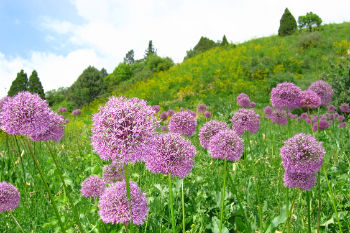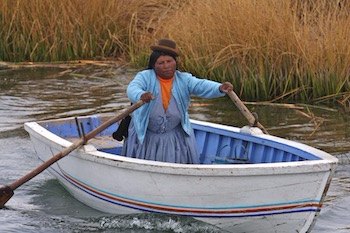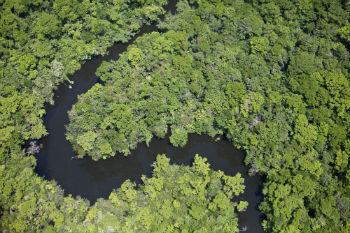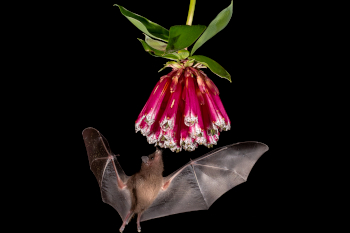Main menu
CEPF is a joint initiative of l’Agence Française de Développement, Conservation International, the European Union, Fondation Hans Wilsdorf, the Global Environment Facility, the Government of Japan and the World Bank.
Visitez le site français コア情報の日本語翻訳を読むOr use Google Translate to translate the English site to your language:
GTranslate
Empowerment Through Ecotourism
Increasing the capacity of the Batwa People in Uganda
07 August 2019
07 August 2019
UPDATE: With MUST's help, the Batwa people were formally given permission to collect wildlings and seedlings from Bwindi Impenetrable National Park. Read the June 2019 letter from the Uganda Wildlife Authority.
Along the southern border of Uganda’s Bwindi National Park, home to almost half of the world’s mountain gorillas (Gorilla beringei beringei), a unique partnership has taken hold between CEPF grantee Mbarara University of Science and Technology (MUST) and the indigenous Batwa people.
Together, they are creating a means for the Batwa people to participate in park management committees, helping them negotiate natural resource usage rights, and improving the “Batwa Forest Experience,” an ecotourism venture at the edge of the national park.
When Bwindi National Park was established in 1991, the Batwa were forced to leave, creating a difficult social dynamic, pitting the rights of historically marginalized people against broader conservation goals.
“Uganda is now looking for answers to the Batwa plight,” said MUST’s Medard Twinamatsiko Katonera. “We hope their culture will be celebrated through the Batwa Forest Experience as they reconnect to their natural world and conserve this great forest.
“We are training 20 Batwa tour guides, 20 Batwa dancers and about 22 Batwa in enterprise development, financial management, negotiation and basic research skills,” he said. The project brought the Batwa together under the Bwindi Batwa Community Development Association (BBCDA), and has enabled them to voice their concerns to the Uganda Wildlife Authority (UWA), local government and other stakeholders.
In 2018, the project also helped place two Batwa representatives on the Revenue Sharing Project Management Committee and two Batwa representatives on the Problem Animal Management Committee. UWA recruited one of its first Batwa rangers, John Kaheru, who can now participate in decision-making about protecting Bwindi’s forest.
MUST’s efforts come at a time of conservation success for the flagship species of the region. The IUCN Red List of Threatened Species downlisted the mountain gorillas from Critically Endangered to Endangered due to population growth resulting from effective conservation.
Empowering the Batwa to conserve their culture and get their voices heard will build on that success and allow these former inhabitants of Bwindi to thrive with it.
This article was original published in CEPF's 2018 Annual Report.







